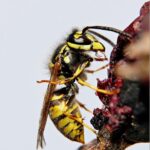
Rethink Pest Control: Why the Traditional Approach No Longer Works
Introduction
The time has come to rethink pest control because infestations rarely occur in isolation. They often point to deeper problems in hygiene, maintenance, or infrastructure. Still, many businesses rely on outdated models: treatments without strategy. This method doesn’t fail because of poor service, but because it lacks system-wide thinking.
Why Pest Control Treatments Keep Failing
Pest controllers often treat symptoms, not causes. Without coordination between cleaning teams, maintenance crews, and operational leads, the conditions that attract pests remain. The result? Recurring infestations and rising costs.
The Limitations of Traditional Pest Control Contracts
Many companies see pest control as a compliance box, not a collaborative process. Technicians work in isolation and lack influence over sanitation, building access, or waste management. Without integrated teamwork, prevention is impossible.
Addressing Environmental Causes, Not Just Infestations
- Cockroaches flourish where food waste and water leaks go unchecked.
- Rodents enter through unsealed doors and damaged infrastructure.
- Flies breed in overflowing bins and blocked drains.
Treatments alone won’t eliminate these problems. It takes site-wide effort to resolve the root causes.
Read more on Seasonal Pest Problems in Didcot and Wallingford.
What Empowered Pest Control Should Look Like
Empowered technicians conduct audits, lead walk-throughs, and suggest practical improvements. When they collaborate with sanitation and maintenance leads, pest control becomes preventive, not reactive. This approach delivers fewer infestations and stronger audit performance.
From Reactive Pest Control to Preventive Strategy
Preventive pest control starts with inspections, data, and collaboration. It’s the only method aligned with rising compliance standards and customer expectations. When cleaning, operations, and pest teams unite, sites become resilient to pests.
See how we deliver this in Didcot and Wallingford.
Changing the Narrative Around Pest Management
It’s time to position pest controllers as compliance partners, not crisis responders. They offer foresight, insight, and actionable recommendations. Integrated into daily operations, they reduce risks and enhance site safety.
Discover more on the Shire Pest Solutions Blog.
Final Thoughts: Take Control of Your Site
Successful pest control requires authority, access, and accountability. Treatments must be supported by cultural change, environmental control, and collaboration.
If you work in food production, facilities, or compliance:
- Stop treating pest control as an afterthought.
- Start building a culture of prevention and shared responsibility.
Do you want to solve the root problem—or just treat the symptoms?
Rethink pest control. Let’s do it properly,Cheap does not solve problems
Contact Shire Pest Solutions to discuss a proactive plan for your facility.




